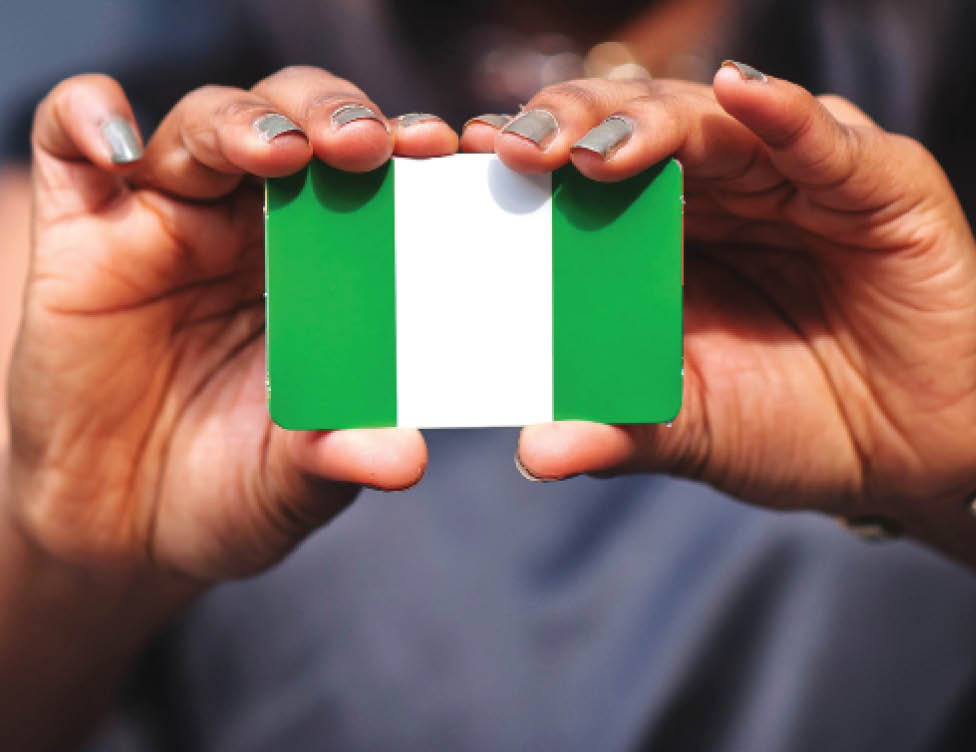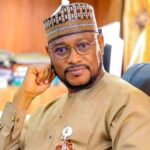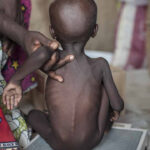Jerome-Mario Chijioke Utomi
Even when it is a known fact that right from 1967, the nation Nigeria suffered acute leadership challenge; yet, each passing day brings to mind reasons as to why the President Muhammadu Buhari-led administration should apologize to Nigerians. This present assertion is predicated on the fact that if what happened in the years preceding the current administration was a challenge to Nigeria and Nigerians, what is happening currently under the present administration is a crisis.
Aside from the fact that the administration has glaringly failed to implement pro-poor initiatives, this piece will cite three recent concerns/examples.
- We ‘ll miss Alaafin’s intellectual capacity – Osinbajo
- Windstorm wreaks havoc in Taraba, kills 7 children, destroys 300 houses
First and very fundamental is the latest declaration/awareness by Prof. Oyedunni Sola Arulogun of the Department of Health Promotion and Education, University of Ibadan (UI) that Nigeria was boiling as virtually all citizens live in extreme poverty.
Going by media reports, the don who spoke on the topic “The invading force of science and technology and the complementary role of entrepreneurial education in the new world” at the 4th matriculation ceremony of 156 students of Admiralty University of Nigeria (ADUN), Ibusa, near Asaba, Delta State, among other concerns explained that as of April 19, 2022, at 1:00 pm, the poverty index of Nigeria shows that 83,005,582 Nigerians (representing 39 per cent of the world) are currently living in extreme poverty with 53 per cent in rural areas of equal proportion of males and females.
She described the trend as a bad omen for a country like Nigeria and stressed that “by our economic planning, the target escape rate is 0.3 per minute but the reality is -3, hence the poverty rate is increasing in Nigeria on a daily basis”.
A recent report by the World Bank is not anything better.Titled: “A Better Future for All Nigerians: Nigeria Poverty Assessment 2022”; the report represents the culmination of the World Bank’s engagement on poverty- and inequality-relevant data and analytics in Nigeria in the past two years.
It draws primarily on the 2018/19 Nigerian Living Standards Survey (NLSS), which provided Nigeria’s first official poverty numbers in almost a decade, as well as the Nigeria COVID-19 National Longitudinal Phone Survey (NLPS). These surveys were implemented by Nigeria’s National Bureau of Statistics (NBS) in collaboration with the World Bank.
According to the report which brings together the latest evidence on the profile and drivers of poverty in Nigeria; as many as 4 of 10 Nigerians live below the national poverty line.
Many Nigerians – especially in the country’s north – also lack education and access to basic infrastructure, such as electricity, safe drinking water, and improved sanitation, among others.
Before the dust raised by the above comment could settle, another was up.
This time around from the World Health Organization (WHO); which it released during the celebration of the World Malaria Day (WMD). WMD, a day set aside by the World Health Organization (WHO) to raise awareness on the mosquito-borne disease and examine efforts towards prevention, treatment, control and elimination of the illness, and had as theme; ‘Harness innovation to reduce the malaria disease burden and save lives.’
While calling for investments and innovation that will bring new vector control approaches, diagnostics, anti-malaria medicines and other tools to speed up the pace of progress against malaria; WHO said something that will be a source of worry to all Nigerians of goodwill.
The WHO, in that report, stressed that four African countries accounted for just over half of all malaria deaths worldwide: Nigeria (31.9%), the Democratic Republic of the Congo (13.2%), United Republic of Tanzania (4.1%) and Mozambique (3.8%). The global body was particularly worried that despite efforts to contain malaria, Nigeria loses over $1.1 billion (N645.7 billion) yearly to prevention and treatment of the disease as well as other costs.
But if these two reported cases of economic hardship and ravaging malaria in the country are considered a challenge, the next report coming from UNICEF, another global body and centered on the high degree of malnutrition in the country, should cause dropping spirits among Nigerians with critical minds.
UNICEF, among other declarations noted that about 14.5 million Nigerians suffer from acute food insecurity while about 12.5 million people are hungry. The figures indicated that Nigeria still remains off track in achieving the Sustainable Development Goals (SDGs) Two of ensuring zero hunger.
The Nutrition Officer of the United Nations International Children’s Emergency Fund (UNICEF), Nkeiruka Enwelum, who disclosed this at a media dialogue on ‘SDGs as Child Rights’ organised in collaboration with the Child Rights Information Bureau (CRIB) of the Federal Ministry of Information and Culture, in Enugu, said Nigeria ranks number one in Africa and second in the world in terms of the number of children malnourished, adding that about 35 million children in the country under the age of five were malnourished.
Enwelum noted that 3.3 million child deaths annually were attributed to malnutrition, stressing that poor nutrition in the first 1000 days from the conception of a child to two years of age results in permanent damage.
While this development remains a pain deepened by the fact that they were avoidable; this piece holds the opinion that there is no end in sight to such ugly occurrences and report particularly as the running of our country’s economy continues to go against the provisions of our constitution which stipulates forcefully that the commanding heights of the economy must not be concentrated in the hands of few people.
The continuous takeover of national assets through dubious (privatization) programs by politicians and their collaborators is deplorable and clearly against the people of Nigeria. The attempt to disengage governance from public sector control of the economy has only played into the hands of private profiteers of goods and services to the detriment of the Nigerian people.
Finally, from the above, it is clear that much needs to be done to help lift millions of Nigerians out of poverty, including boosting health and education, bolstering productive jobs, and expanding social protection. To use the words of the World Bank in the cited report, achieving this purpose, will require at least three types of deep, long-term reforms to foster and sustain pro-poor growth and raise Nigerians out of poverty.
These include: (1) macroeconomic reforms (including fiscal, trade, and exchange rate policy); (2) policies to boost the productivity of farm and non-farm household enterprises; and (3) improving access to electricity, water, and sanitation while bolstering information and communication technologies.
These reforms together could help diversify the economy, invigorate structural transformation, create good, productive jobs, and support social protection programs as well as other redistributive government policies.
Utomi writes from Lagos.




